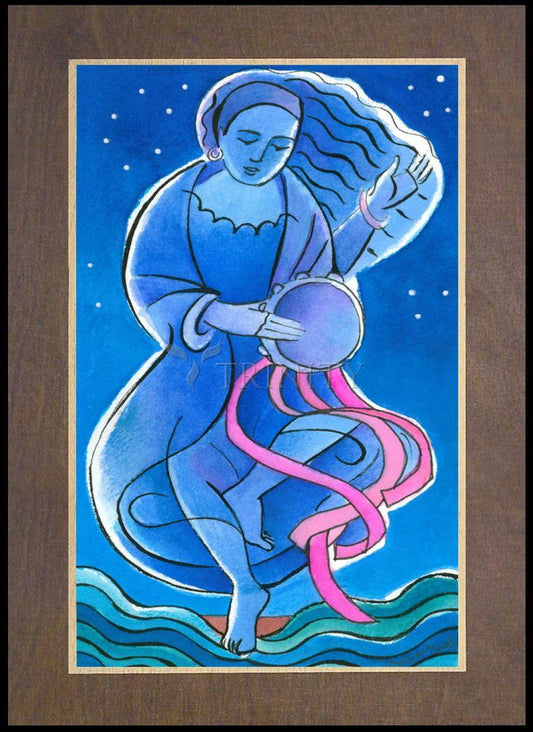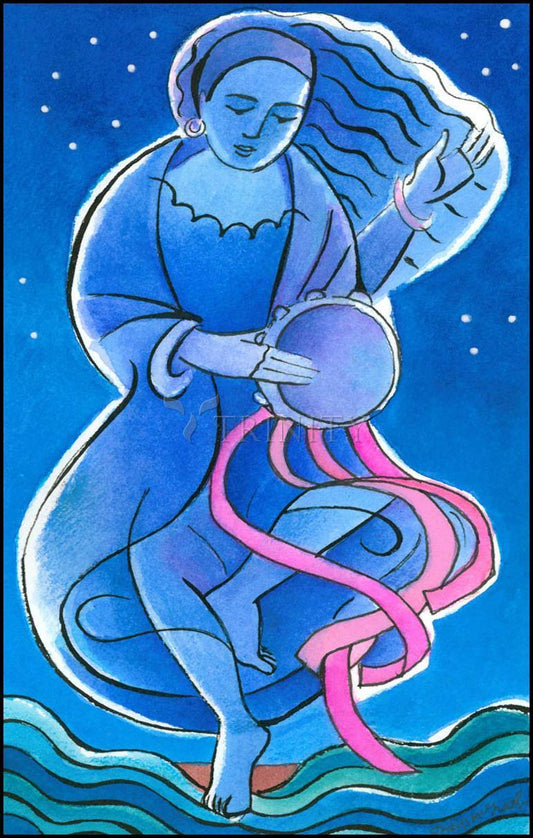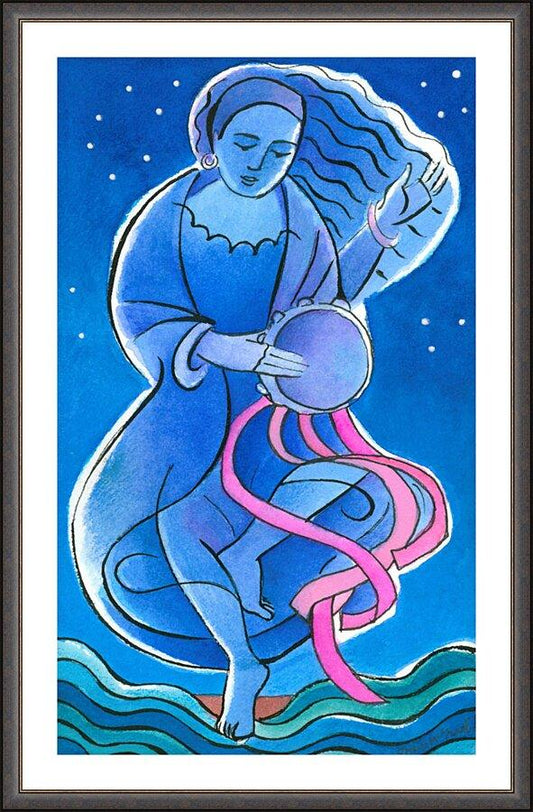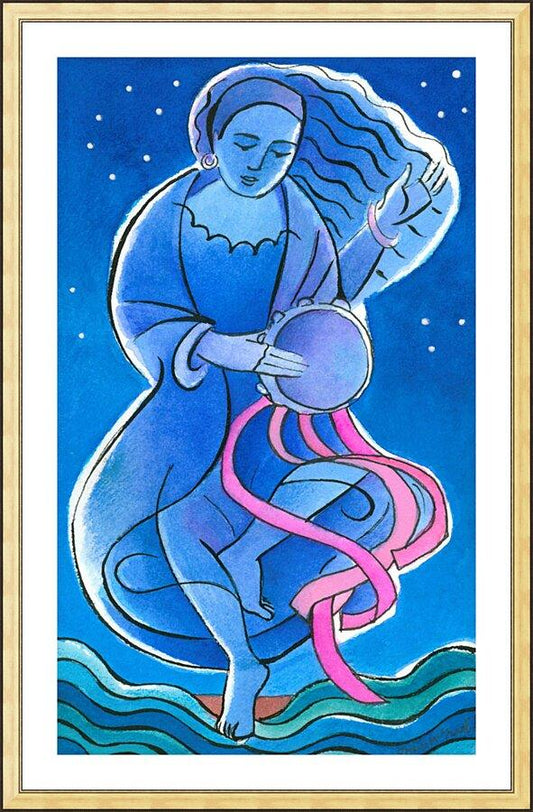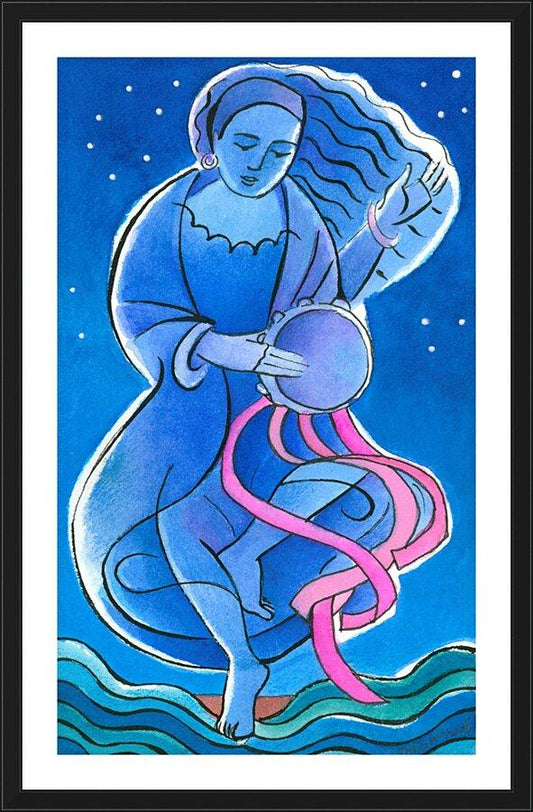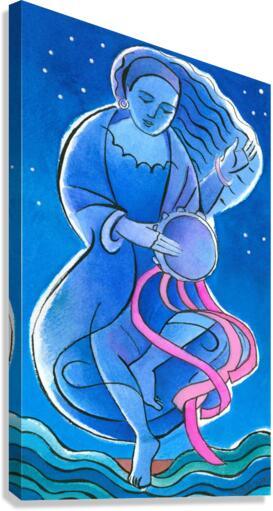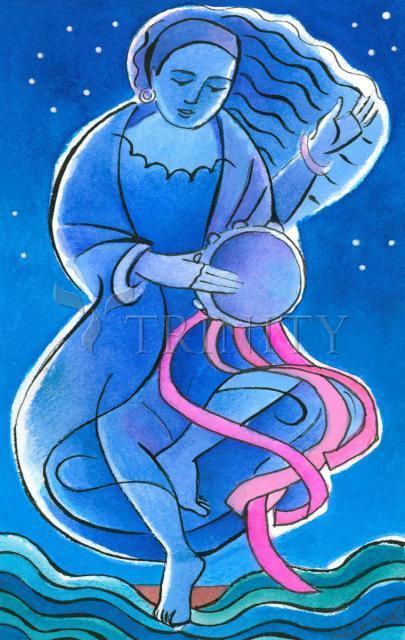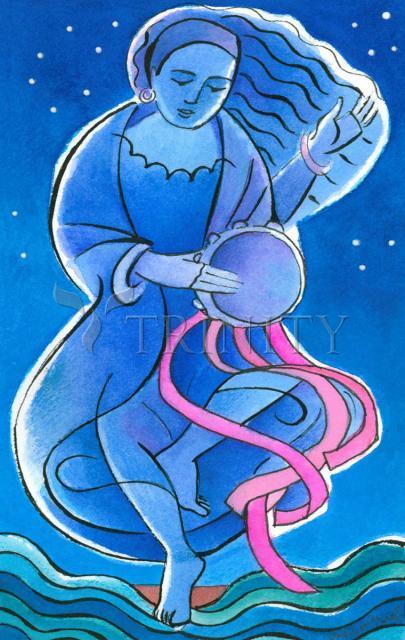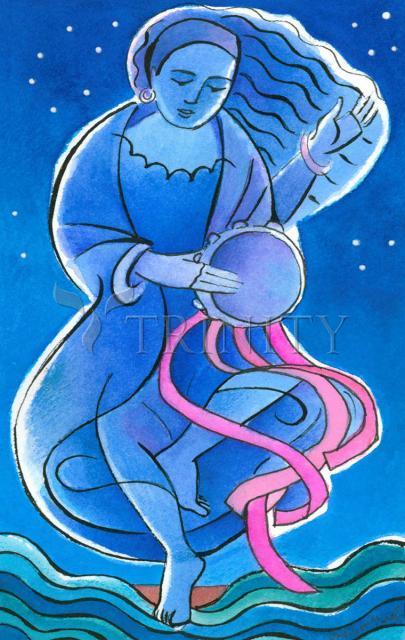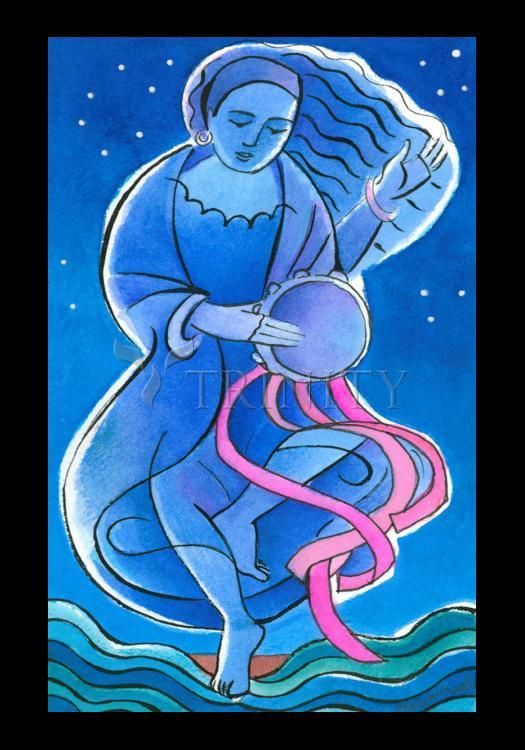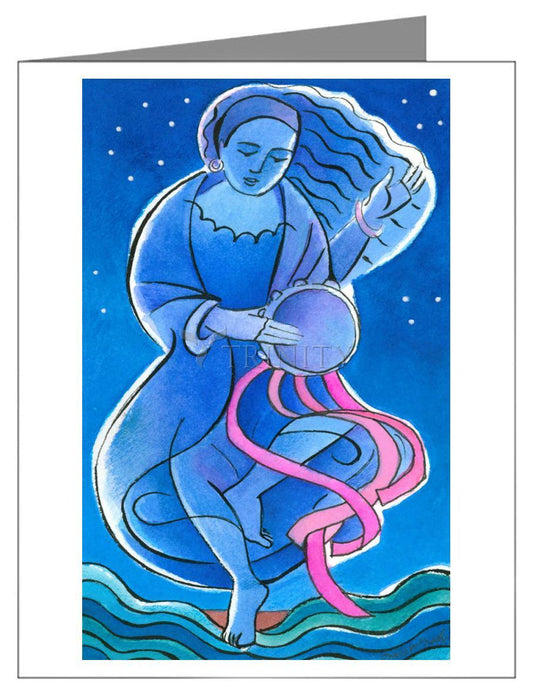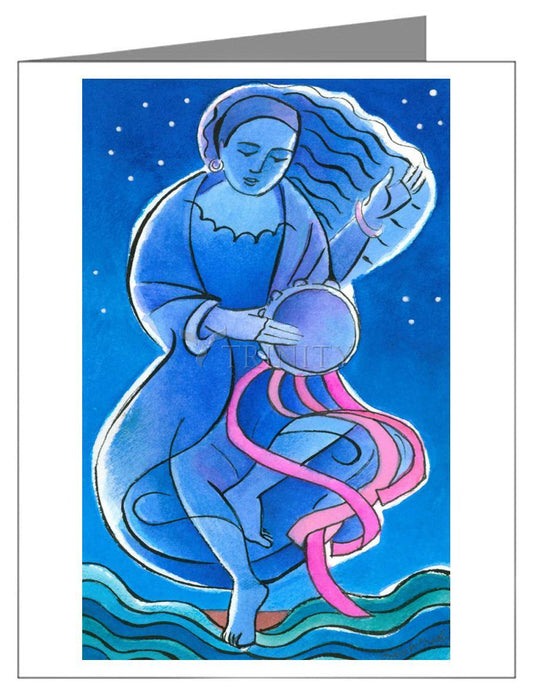While Jews do not have saints, they do have 'mothers and fathers', people to be honored. Here is where we find Miriam. Miriam is the older sister of Moses, and she is thought to be the actual voice behind one of the oldest poems in the Hebrew Scriptures, The Song of Moses, celebrating the previously unimaginable event of God taking the side of the forgotten, dispossessed slaves and leading them to freedom. In Exodus, Miriam leads the women of Israel in a dance of thanksgiving for the freedom God has given them. It is her voice thought to be the predecessor for Mary's Magnificat, the song of the oppressed and marginalized.
Ritual singing by women was common in ancient Israel. Women sang particularly at victory celebrations, going out to meet returning warriors and greeting them with songs which expressed their relief, joy, and jubilation at the defeat of enemies.
The particular song that Miriam and the women sang may well have been a back-and-forth chant between the men and the women.
Philo of Alexandria (On A Contemplative Life), described Jewish women standing in rows, swaying and moving their arms and bodies in harmony, chanting rhythmical songs together.
They accompanied their swaying movements with the metallic jingle of tambourines. Other musical instruments used at the time were gongs, harps, pipes and flutes, shofars (made from a ram's horn), trumpets, lutes and lyres.



